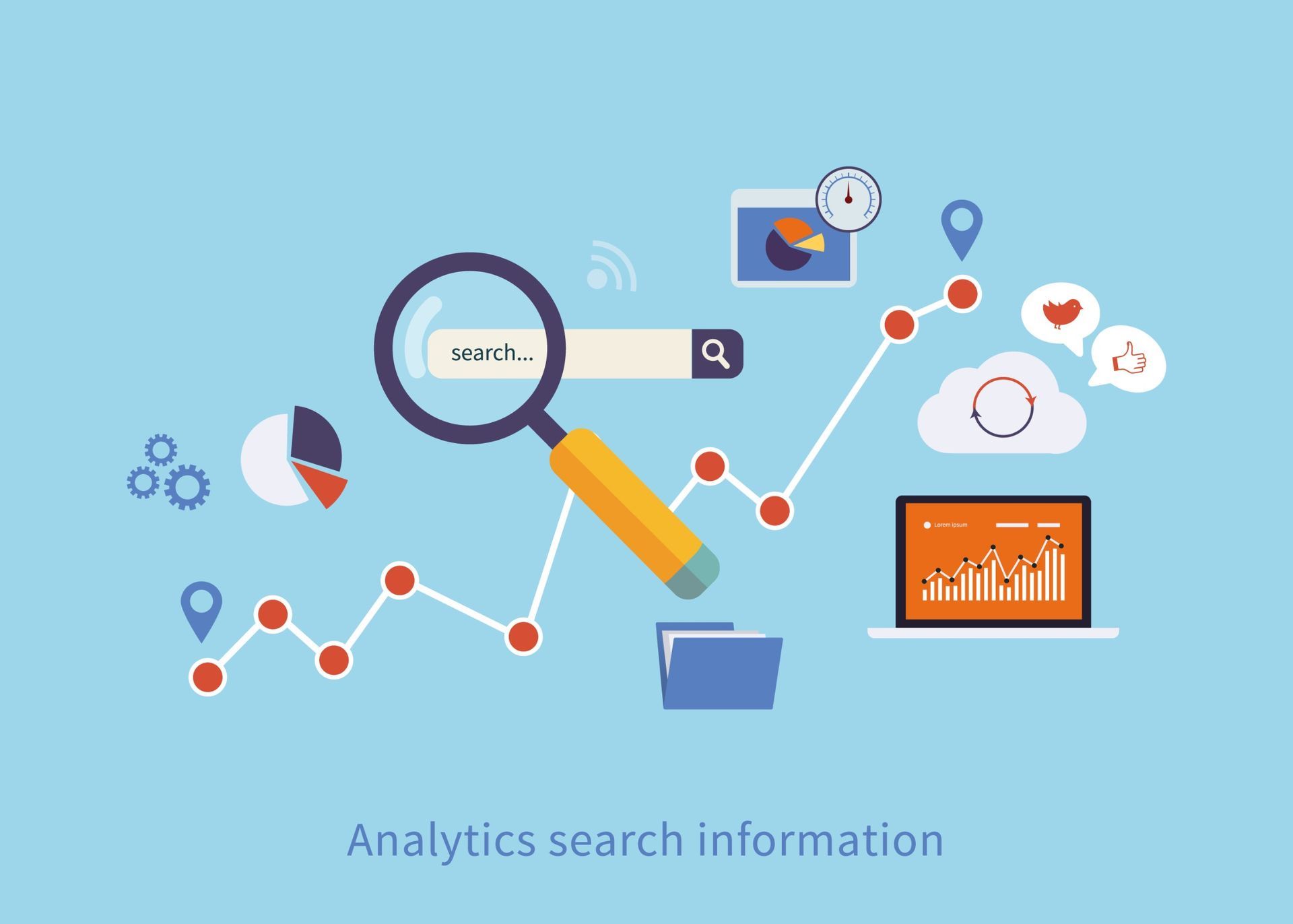GET A FREE CONSULTATION TODAY - CALL US (833) 656-5006
Why Social Media Management Is Important For Your Business
Today's businesses aren't just brick-and-mortar establishments, they also dwell in the online spaces where potential customers spend a large portion of their time. Social media management has, therefore, emerged as a critical aspect of online marketing strategies. But why is it so important?
In this blog post, we'll explore the reasons behind the growing prominence of
social media management in the business world.
Understanding the Benefits of Social Media Management for Your Business
Social media management arms businesses with the tools necessary to engage with their audience, build brand loyalty, and guide potential customers down the sales funnel. The advantages are manifold and can be broadly classified under four main categories:
- Brand Awareness: Effective social media management allows businesses to reach a wider audience, increasing visibility and promoting brand recognition.
- Customer Engagement: It provides a platform for businesses to interact with their audience, fostering a sense of community and encouraging customer loyalty.
- Insight into Customer Behavior: Through social media, businesses gain valuable insight into customer preferences and behaviors, enabling them to tailor their products or services accordingly.
- Increased Traffic and Sales: Regular, engaging content on social media can drive more traffic to a business’s website, leading to higher conversion rates and increased sales.
Developing a Social Media Strategy to Increase Brand Awareness
Creating a successful social media strategy involves several key steps:
- Identify Your Target Audience: Understand who your customers are, their interests, their preferred social media platforms, and the type of content that resonates with them.
- Set Clear Goals and Objectives: Determine what you want to achieve through your social media presence, whether it's increasing brand awareness, driving website traffic, or boosting sales.
- Choose the Right Platforms: Not all social media platforms are suitable for every business. Identify where your target audience is most active and focus your efforts there.
- Create Engaging Content: Regularly post content that is valuable to your audience. This might include company updates, behind-the-scenes peeks, promotional offers, or educational content.
- Monitor and Adjust Your Strategy: Keep track of your social media performance metrics to understand what's working and what isn't. Be prepared to adjust your strategy as needed to best meet your goals.
Utilizing Analytical Tools to Track Progress and Set Goals
- Use of Analytics Tools: Utilizing analytical tools allows businesses to measure the success of their social media strategy. These tools offer insights into your audience's engagement with your content, including likes, shares, comments, and more.
- Understanding Key Metrics: It's important to understand key metrics such as reach, engagement, conversion, and customer acquisition cost. These numbers shed light on the efficacy of your social media efforts.
- Setting Realistic Goals: Based on the insights derived from these analytical tools, set achievable goals for your social media strategy. For instance, aim for a certain increase in follower count, engagement rate, or website traffic.
- Integrating Social Media and Overall Marketing Strategy: Your social media strategy should not operate in isolation. Ensure it is integrated with your overall marketing strategy, aligning with your business's broader goals and objectives.
- Adapting to Changes: Social media trends are ever-evolving. Keep an eye on these changes and be ready to adapt your strategy as necessary, whether it's embracing a new social media platform or incorporating a trending content format.
Creating Engaging Content That Appeals to Your Target Audience
- Understand Your Audience's Interests: The first step in creating engaging content is understanding what your audience is interested in. Look at the kinds of posts they interact with most, ask for their input, and use this information to create relevant content.
- Quality over Quantity: Don't just post for the sake of posting. It's better to post less frequently but make sure what you post is high-quality and valuable to your audience.
- Use Visuals: Images, infographics, and videos are often more engaging than plain text. Use them wherever possible to grab your audience's attention.
- Interact with Your Audience: Don't just post content and leave it at that. Encourage your audience to interact with your posts by asking questions, hosting contests, or requesting feedback.
- Keep up with Trending Topics: Posting about relevant trends can help your content reach a broader audience. However, make sure the trend is relevant to your business and audience.
- Test Different Formats: Different content formats work better for different audiences. Try a mix of text posts, images, videos, and more to see what resonates with your audience.
- Promote User-Generated Content: Encourage your audience to share their own content related to your brand. It can foster a sense of community and gives you valuable content to share.
Experimenting With Different Platforms to Reach Your Desired Audiences
- Facebook: With over 2.8 billion monthly active users, Facebook is a versatile platform that caters to a diverse audience. Its powerful advertising and analytics tools make it a great choice for businesses.
- Instagram: As a highly visual platform, Instagram is perfect for brands that rely on images, such as clothing retailers or travel agencies. It's particularly popular with younger demographics.
- Twitter: Twitter's emphasis on real-time updates makes it ideal for news, updates, or customer service. With the right hashtags, even small brands can gain visibility.
- LinkedIn: The go-to platform for B2B companies, LinkedIn allows businesses to connect with professionals in their industry. It's ideal for sharing professional content and industry news.
- Pinterest: Pinterest's user base is predominantly female, making it an excellent choice for brands that target women. It's particularly useful for sharing ideas and inspiration, such as recipes or interior design tips.
- TikTok: The newest player in the social media landscape, TikTok is a video-based platform that has rapidly gained popularity among young audiences. Brands that manage to capture its unique, offbeat style can achieve significant engagement.
- Snapchat: With a primary demographic of 13 to 24 year-olds, Snapchat is the platform of choice for brands wanting to reach a younger audience. Its ephemeral content encourages frequent check-ins.
Remember, the key is not to be on all platforms, but rather to pick the ones where your target audience is most active and your content fits best.
Establishing a Schedule for Regular Posting and Interacting With your Followers
- Consistency is Key: It's important to post consistently to maintain your audience's interest and engagement. Determine a posting schedule that suits your brand and audience.
- Use Scheduling Tools: Various social media management tools allow you to schedule posts in advance. This ensures your social media accounts stay active, even when you're busy.
- Timing Matters: Posting at the right times can significantly increase your reach and engagement. Research when your audience is most active and aim to post during these peak times.
- Interact Regularly: Don't forget to respond to comments and direct messages in a timely manner. This shows your audience that you value their input and helps build a stronger relationship with them.
- Review and Adjust: Regularly review your posting schedule and engagement rates. Be prepared to adjust your schedule as needed to optimize reach and engagement.
About Ai Business Marketing
Ai Business Marketing is a pioneering digital marketing agency that thrives in the intersection of technology, business, and marketing. We leverage the power of artificial intelligence to deliver highly-targeted, effective marketing strategies that drive growth and success for businesses in the digital landscape. With a team of seasoned professionals, we specialize in a wide array of digital marketing solutions including Search Engine Optimization (SEO), content marketing, social media marketing, and pay-per-click advertising. Contact us today to unlock the potential of your business and take it to the next level.
Ai Business Marketing
We are the premier digital marketing solution in the United States. Contact us today to get your free, no-obligation consultation!
Get In Touch
Business Hours
- Mon - Fri
- -
- Sat - Sun
- Closed







